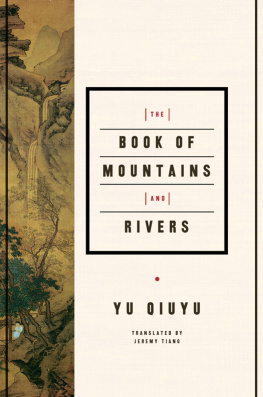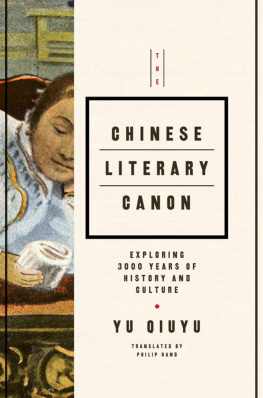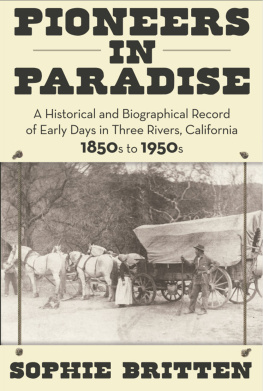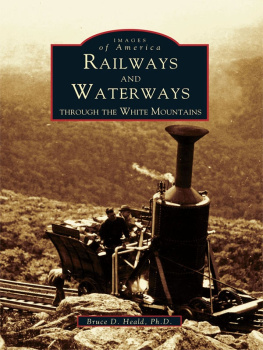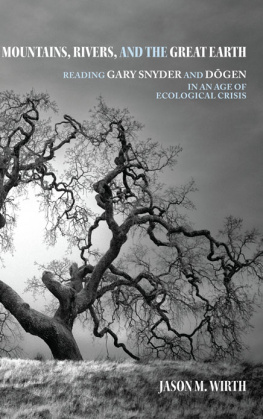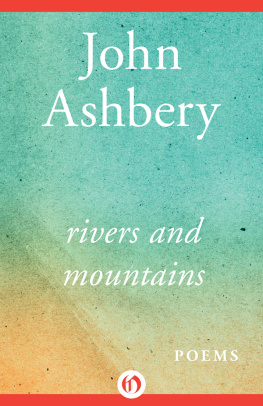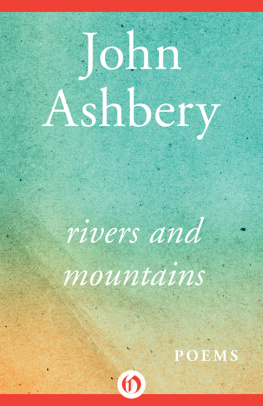Yu Quiyu - The Book of Mountains and Rivers
Here you can read online Yu Quiyu - The Book of Mountains and Rivers full text of the book (entire story) in english for free. Download pdf and epub, get meaning, cover and reviews about this ebook. genre: Religion. Description of the work, (preface) as well as reviews are available. Best literature library LitArk.com created for fans of good reading and offers a wide selection of genres:
Romance novel
Science fiction
Adventure
Detective
Science
History
Home and family
Prose
Art
Politics
Computer
Non-fiction
Religion
Business
Children
Humor
Choose a favorite category and find really read worthwhile books. Enjoy immersion in the world of imagination, feel the emotions of the characters or learn something new for yourself, make an fascinating discovery.
The Book of Mountains and Rivers: summary, description and annotation
We offer to read an annotation, description, summary or preface (depends on what the author of the book "The Book of Mountains and Rivers" wrote himself). If you haven't found the necessary information about the book — write in the comments, we will try to find it.
Yu Quiyu: author's other books
Who wrote The Book of Mountains and Rivers? Find out the surname, the name of the author of the book and a list of all author's works by series.
The Book of Mountains and Rivers — read online for free the complete book (whole text) full work
Below is the text of the book, divided by pages. System saving the place of the last page read, allows you to conveniently read the book "The Book of Mountains and Rivers" online for free, without having to search again every time where you left off. Put a bookmark, and you can go to the page where you finished reading at any time.
Font size:
Interval:
Bookmark:


E VERY INDIVIDUAL WILL , sooner or later, experience this most extreme fear.
Not old age and death, nor plague and pestilence, nor burglary and theft, but rather, a beguilingly sunny afternoon, in which a pretty teacher stands before her General Knowledge class. She says, The universe has no boundaries. The Earth is minuscule, and even the sun it revolves around is no more than a tiny star within the vast Milky Way.
Roughly how many stars are in the Milky Way? asks a student, shyly.
Three hundred billion, she answers placidly, emphasizing the billion.
An intake of breath all round the classroom.
If the Milky Way is so enormous, are there other galaxies? asks the same student.
Many, many of them, she replies.
Roughly how many? the student persists.
Wed also count them in hundreds of billions, at the very least, comes the response.
These answers make the students embarrassed to ever ask anything again about the Earth.
A few days later, a male teacher reveals to them that the insignificant Earth has been in existence more than four billion years, whereas humanity has only been around for the last three million of thosenot even one thousandth, equivalent to the last minute in a whole twenty-four hour period.
Please remember, the male teacher quickly adds, that this last minute refers to the whole three million years. If we talk about actual human civilisation, that only took place in the last ten thousand years. Thats hardly anything, barely a moment. So little time there isnt a metaphor for it.
This spate of classroom discussions left the children suffused with an earth-shaking terror as they formed their views of the world and human existence.
But children are children, after all, and change their moods with exceeding ease. Soon, the joys and squabbles and contests immediately around them replaced the figures of three hundred billion or four billion. In their minds, vast truths became stories, while small games became reality.
Only one child didnt turn away entirely, and that was me. I continued to consider this terrifying topic, and came to understand that the teachers scope of reference was still too small, too shallow. Perhaps they were afraid of damaging our fragile juvenile psyches and didnt explain further that amidst the constant movement of numberless galaxies in our universe, there was no force that could prevent the Earth from disappearing, and no controlling intelligence to decide if that disappearance would take place soon, or much later.
Even if the Earth failed to vanish, humanity could still easily be destroyed. Natural nuclear reactors may have formed in Gabon two billion years ago, and are estimated to have run for five hundred million years. An ancient map was found in Turkey that could seemingly only have been created after space travel were possible. More and more remnants are coming to light, leading one to believe that long before humanity existed, there were already numerous prehistoric super-civilizations that were destroyed one after another. In that case, how can we be sure the present species, humankind, will prove the exception and continue our existence?
All of this formed the basis of my worldview: a heroic pessimism that cut through the utilitarianism surrounding me.
But the negativity in this pessimism was, itself, cut throughsadness and joy being, after all, the default condition of humanity.
O F COURSE , after seeing through everything else, we still have to see through ourselves: a meagre mortal body cannot escape the fragility of its existence, and all we can do is judge our own species, and then ourselves.
My friend Zhou Tao once invented this scenario: two ants encountered somewhere on a plain, but each was too reserved to acknowledge the other. After crawling a long distance more, both regretted this. They were the same species after all, why not embrace each other?
We are such ants.
Were tiny, and possess a life of sorts. Life comes with its own inherent qualities.
The first of these qualities is to seek community, and the second is to extend itself. To a human being, with an intellect vaster than an ants, being able to seek community and extend our lives, echoing what is around us, is comforting to ourselves and others.
People mainly comfort themselves and others by searching for meaning. The meaning of existence, the meaning of life, the meaning of community, the meaning of continuationthis was easier in the old days, when a person of intelligence only had to step forward and say meaning for everyone to believe them; in the modern world, with everyone knowing the speck of truth about the milky way and the earth, its hard to place ones trust in various meanings at a fundamental level. Contemporary sages would find particular difficulties heretheyd be required to un-know all that they know. For myself, I would call this cutting off the thread of thought, in order to capture meaning. This is the situation described by Vaclav Havel, that of searching for islands of meaning in the midst of a vast sea.
These islands of meaning could cause humanity to forget the enormous ocean, the terrifying waves, creating a sense of spiritual security, in which we can reside. This, then, is culture.
Living on these islands of meaning, theres a high possibility of conflict taking place, even fighting over meaning, and so there is a need to divide meaning into many layers, in order that everyone can mind their own business, do their own jobs, expend their own bodies. And so, the culture is obliged to shrink its overarching viewpoint, becoming more specialized, more biased, more fragmented, leading to the emergence of many narrower meanings.
As soon as each meaning comes into being, it begins to expand its scope, in order to justify its own existence. For instance, the meaning of the individual, of the group, of the family, of the tribe, of the nation, of Western values, of Asian values, and so forth. With so many islands of meaning each proclaiming its own supreme importance, we have to ask whether they truly are as significant as they claim. Here we look to Havels words again, when he says that each island must ask itself whether it is connected to an underwater mountain range. If it is, this is a meaning one can trust in; if it is merely a coral reef, this meaning will need to be replaced. According to Havels autobiography, he extricated himself from the ideology of Eastern Europe to become the President of the Czech Republic, because he realized that the original meaning was not to be depended on.
At the same time, how reliable was the new island that he found? How could it prove its connection to the underwater mountain range? And even if this connection existed, would it be strong enough to withstand a tsunami?
T HE TSUNAMI AND ISLAND are metaphors. We perch in the midst of metaphors.
Now and then, a truthful vision will awaken us again, for instance those of Laozi, Zhuangzi, Siddhartha, Einstein, Stephen Hawking
Their call to consciousness often leaves us in a cold sweat. Looking back at the world, at humanity busily asserting all manner of meanings, spying on and destroying each other, the blood and flames of battle, pages flooded with ink, dispute after dispute. Only after the clarion call do people realize that the meanings theyve been wallowing in are all suppositions, and so quieten down somewhat.
Font size:
Interval:
Bookmark:
Similar books «The Book of Mountains and Rivers»
Look at similar books to The Book of Mountains and Rivers. We have selected literature similar in name and meaning in the hope of providing readers with more options to find new, interesting, not yet read works.
Discussion, reviews of the book The Book of Mountains and Rivers and just readers' own opinions. Leave your comments, write what you think about the work, its meaning or the main characters. Specify what exactly you liked and what you didn't like, and why you think so.

